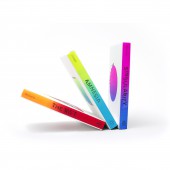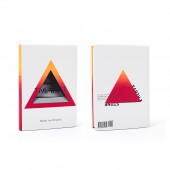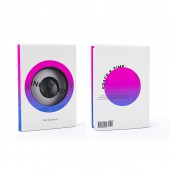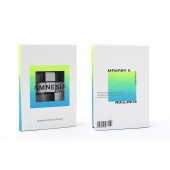
| THE AWARD |
| CATEGORIES |
| REGISTRATION |
| SUBMIT YOUR WORK |
| ENTRY INSTRUCTIONS |
| TERMS & CONDITIONS |
| PUBLICATIONS |
| DATES & FEES |
| METHODOLOGY |
| CONTACT |
| WINNERS |
| PRESS ROOM |
| GET INVOLVED |
| DESIGN PRIZE |
| DESIGN STORE |
| THE AWARD | JURY | CATEGORIES | REGISTRATION | PRESS | WINNERS | PUBLICATIONS | ENTRY INSTRUCTIONS |
Distortion Series Book Jackets by Derek Dubler |
Home > Winners > Design #45542 >Interview |
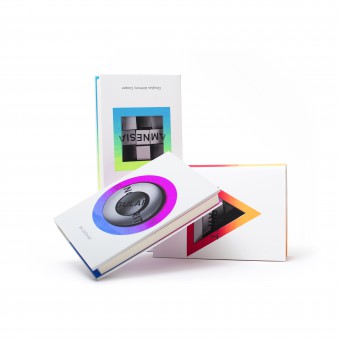 |
|
FS: What is the main principle, idea and inspiration behind your design?
DD: The big idea behind my book jacket series is this concept of distortion. Each book covers a different form of distortion. The Rift is a novel about a large earthquake, Singularity focuses on the science of black holes, and Amnesia is the story of an individual who suffers from memory loss. The forms of distortion then become represented in physical, extraterrestrial, and mental forms. The front cover portrays each form that best represents it's nature. A jagged, triangular descent in the earth's crust. A circular motion that pulls into the event horizon. And square tiles falling out of place as if they were memories.
FS: What has been your main focus in designing this work? Especially what did you want to achieve?
DD: My main focus was designing a system that remained unified, but also allowed each individual book to live on its own. I also wanted to represent each title in the simplest of forms.
FS: How long did it take you to design this particular concept?
DD: The conceptual development took several weeks, and the construction took several more weeks. A total of around 3 months was spent from start to finish.
FS: Is your design being produced or used by another company, or do you plan to sell or lease the production rights or do you intent to produce your work yourself?
DD: This is a conceptual piece of design in which I intend on using it strictly for my own portfolio. I do not plan on selling or leasing the rights unless contacted by one or more authors of the written works I chose.
FS: What made you design this particular type of work?
DD: I have always been inspired by swiss graphic design. Based on work that I have seen in the past, I believe that there is a strong, simple solution to every design challenge. You just have to keep digging until you reach it.
FS: Where there any other designs and/or designers that helped the influence the design of your work?
DD: Several peers and professors gave me feedback that helped me push my idea further.
FS: Who is the target customer for his design?
DD: I suppose the target customer is whoever finds an interest in reading about earthquakes, black holes, or amnesia.
FS: What sets this design apart from other similar or resembling concepts?
DD: Considering that the books I selected are written by three different authors, this concept is unique to the chosen works. This is a series of unrelated titles by author and subject, but related by a singular idea that I revealed through my design.
FS: How did you come up with the name for this design? What does it mean?
DD: The name Distortion Series refers to the central concept behind the project. Different forms of distortion are portrayed through each book and thus, each book jacket.
FS: Which design tools did you use when you were working on this project?
DD: Adobe Illustrator, Photoshop and InDesign were used to prep the files prior to production. A Nikon D3100 & 50mm lens was used to take the photographs of the props that were ultimately used on the front covers. An Epson inkjet printer is responsible for printing out the initial black and white image. The bright colors were then silkscreened by hand as the final step.
FS: What is the most unique aspect of your design?
DD: The most unique aspect of these book jackets is perhaps the striking colors on each jacket.
FS: How did you decide to submit your design to an international design competition?
DD: I was contacted by representatives from the competition suggesting me to enter this particular piece.
FS: What did you learn or how did you improve yourself during the designing of this work?
DD: It really made me realize and appreciate the importance of stepping away from the computer. I feel that designers nowadays get so caught up with a digital workflow, that they don't realize the benefits or excitement that comes from a truly hands on experience.
FS: Thank you for providing us with this opportunity to interview you.
A' Design Award and Competitions grants rights to press members and bloggers to use parts of this interview. This interview is provided as it is; DesignPRWire and A' Design Award and Competitions cannot be held responsible for the answers given by participating designers.
| SOCIAL |
| + Add to Likes / Favorites | Send to My Email | Comment | View Press-Release |
